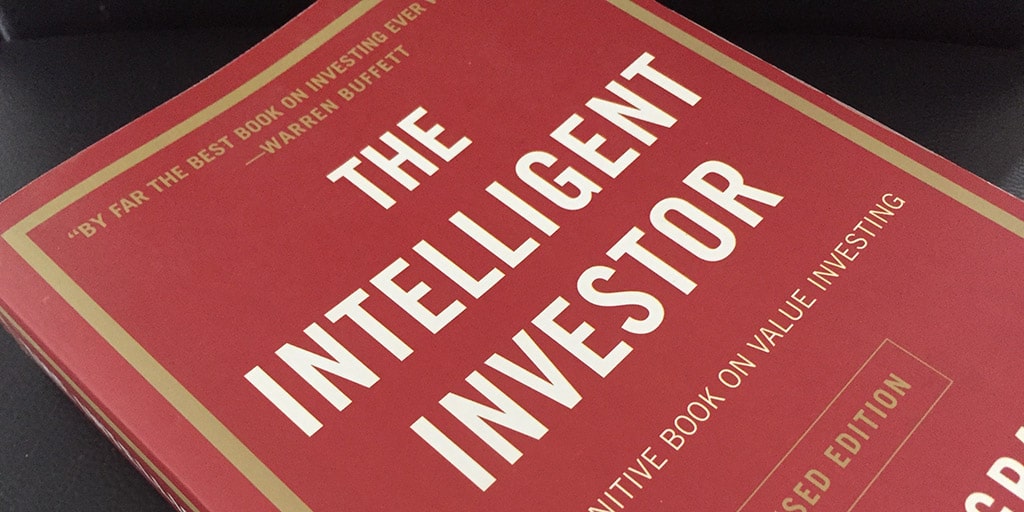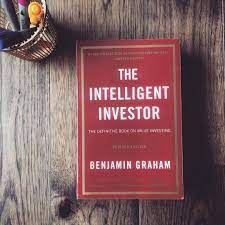Introduction
The book provides strategies on how to successfully use value investing in the stock market. Warren Buffett describes The Intelligent Investor (1949) as “the best book about investing ever written.” Graham exhorted the stock market participant to first draw a fundamental distinction between investment and speculation.
To be an intelligent investor, you must be patient, disciplined, and eager to learn new things. You must also be able to control your emotions and to think for yourself. Chapters are:
- Investment Versus Speculation
- The investor and inflation
- A century of stock-Market history
- General portfolio Policy: The defensive Investor
- The defensive investor and common stock
- Portfolio Policy for the enterprising Investor: Negative side
- Portfolio Policy for the enterprising Investor: Positive side
- The investor and market fluctuations
- Investing in investment funds
- The investor and his advisors
- Security Analysis for the Lady Investor
- Things to consider About per-share Earnings
- A comparison of Four listed companies
- Stock Selection for the Defensive Investor
- Stock Selection for the Enterprising Investor
- Convertible issues and warrants
- Four Extremely Instructive case Histories
- A comparison of Eight Pairs of companies
- Shareholders and managements: Dividend Policy
- “Margin of Safety” as the central Concept of Investment
Summary
According to Graham, intelligent investing consists of three things:
- A thorough analysis of a company and the soundness of its business practices before the purchase of any of its stock
- Making sure that you are protected against any severe losses
- Not aspiring to extraordinary results, but aiming for “adequate” performance
It focuses on the phenomena that the market will be influenced by the economic forces. Inflation plays a major role in it and influences the market on a big a scale.
Many investors fall into the trap of buying high because a stock seems secure, and then selling low when the stock inevitably falters. To counteract this phenomenon, we should adopt the Benjamin Graham formula that suggests we use the “rule of opposites” which posits that the more enthusiastic investors become about a stock option in the long-run, the more certain they are to be proved wrong in the short-run.
The most involved and diverse portfolio investors are known as Active investors, on the other hand, the investors playing it for long term and don’t put as much efforts as active investors are known as Passive investors or Defensive investor.
It’s essential that a sense of familiarity with a company doesn’t replace researching the company’s financial statements. For the majority of the time, the market accurately prices stocks, but occasionally, the price is significantly wrong. Graham explains why by conjuring up an image of the market as being “Mr. Market;” a frantic investor who pays too much for stocks when they are doing well and desperately tries to get rid of them when their price falls. It’s, therefore, important that the intelligent investor can view the market as a fallible, emotion-driven entity, that shouldn’t be blindly trusted, even though most people do. By allowing yourself to get lost in the behavior of the market, you forgo your greatest asset; objective, critical thought.
There’s proof that high IQ and higher education are not enough to make an investor intelligent. In 1998, Long-Term Capital Management L.P., a hedge fund run by a battalion of mathematicians, computer scientists, and two Nobel Prize–winning economists, lost more than $2 billion in a matter of weeks on a huge bet that the bond market would return to “normal.”
All these so-called experts ignored Graham’s sober words of warning: “Obvious prospects for physical growth in a business do not translate into obvious profits for investors.” While it seems easy to foresee which industry will grow the fastest, that foresight has no real value if most other investors are already expecting the same thing. By the time everyone decides that a given industry is “obviously” the best one to invest in, the prices of its stocks have been bid up so high that its future returns have nowhere to go but down.
Though mutual funds make investing seem easy and affordable, they come with their problems. They often under-perform, overcharge, and behave erratically. The intelligent investor must, therefore, choose very carefully before investing in a mutual fund.
Many investors take comfort from the second opinion of an excellent financial advisor. Whether it’s to get advice on the rate of returns or to have someone to blame when things go wrong, having an advisor can prove an essential asset in the intelligent investor’s arsenal. Losing money is an inevitability of investing. To be a smart investor, you need to ensure that you never lose the majority, or all, of your money.
Even though investors all know they’re supposed to buy low and sell high, in practice they often end up getting it backwards. Graham’s warning in this chapter is simple: “By the rule of opposites,” the more enthusiastic investors become about the stock market in the long run, the more certain they are to be proved wrong in the short run.
Many other factors influences the stock picking and pricing accordingly.
The Intelligent Investor is focused on making evidence-based investing decisions. By understanding your financial position and goals you can make effective decisions about how you manage your money.
About the Author
- Graham was born on May 9, 1894 in London.
- He is widely known as the “father of value investing”.
- He graduated from Columbia university.
/ap510529037-5bfc38464cedfd0026c48d5a.jpg)
- He founded the Graham-Newman Partnership and worked at wall-street.
- Warren buffett used his Findings and teachings at work.
- He died on September 21, 1976 in Aix-en-Provence, France.





